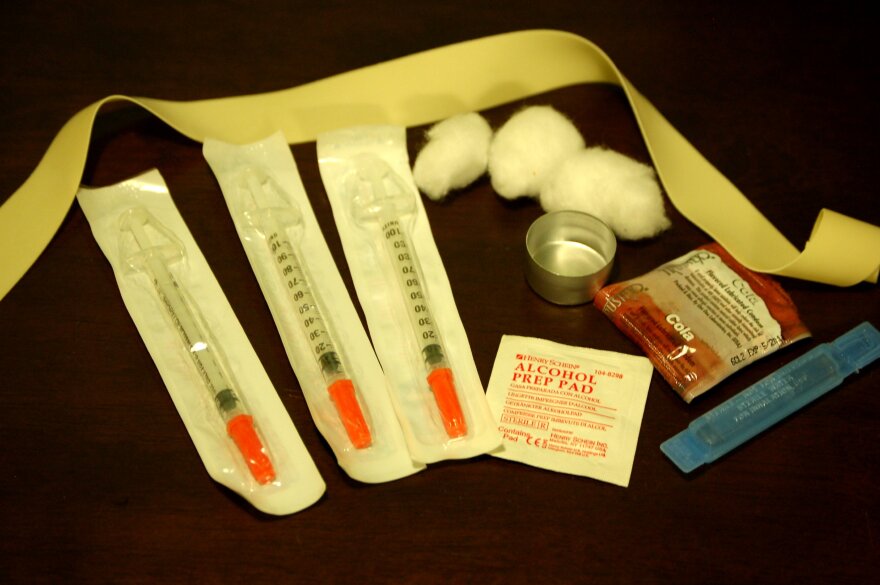Florida Gov. Rick Scott has signed off on a needle exchange pilot program in Miami-Dade County. Advocates believe it’s the best way to counter a wave of new HIV infections.
Needle exchange programs don’t sit well with some. Providing clean needles for drug addicts seems to condone further abuse. But many clinicians, like Dr. Hansel Tookes from Miami’s Jackson Memorial Hospital, see the program as an effective way to intervene.
“I think that the implementing the needle exchange here in Miami shows this population that we do care—Florida cares,” he says. We care and we’re going to provide them services, and that gives them hope, and once we give them hope they have a better chance at success.”
Getting the initiative up and running by July is a tall order, but Tookes is optimistic.
“So luckily there is a blueprint that is tried and true that we’re going to be able to use,” Tookes says, “and when we engage the community here in Miami we’ll find out how to best adapt that blueprint for our city.”
The aim is to slow the increase of HIV infections. Miami-Dade led the state in 2015 with just over 1400 new HIV cases—seventeen percent more than the year prior. The needle exchange program has a five year lifespan and requires annual reporting on effectiveness in fighting infections.






